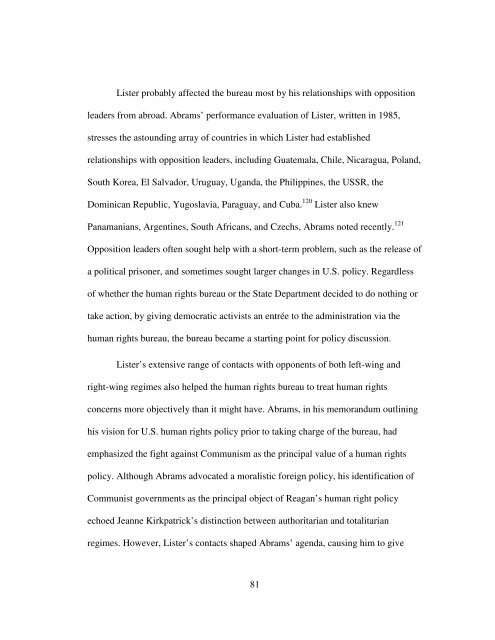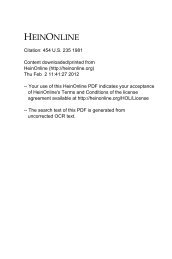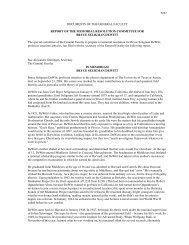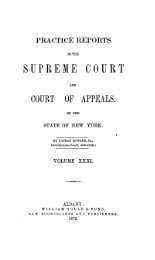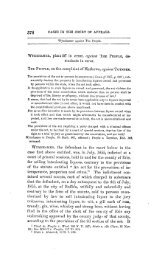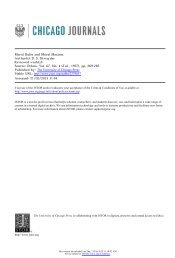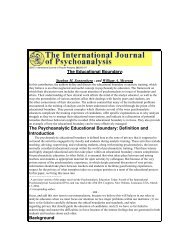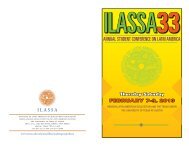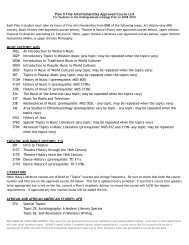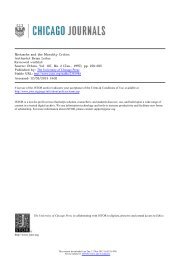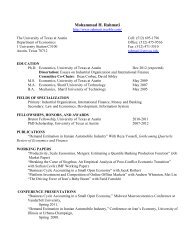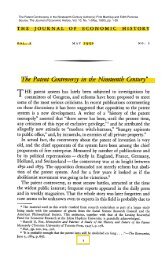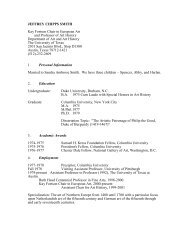Copyright by Gregory Krauss 2007 - The University of Texas at Austin
Copyright by Gregory Krauss 2007 - The University of Texas at Austin
Copyright by Gregory Krauss 2007 - The University of Texas at Austin
Create successful ePaper yourself
Turn your PDF publications into a flip-book with our unique Google optimized e-Paper software.
Lister probably affected the bureau most <strong>by</strong> his rel<strong>at</strong>ionships with opposition<br />
leaders from abroad. Abrams’ performance evalu<strong>at</strong>ion <strong>of</strong> Lister, written in 1985,<br />
stresses the astounding array <strong>of</strong> countries in which Lister had established<br />
rel<strong>at</strong>ionships with opposition leaders, including Gu<strong>at</strong>emala, Chile, Nicaragua, Poland,<br />
South Korea, El Salvador, Uruguay, Uganda, the Philippines, the USSR, the<br />
Dominican Republic, Yugoslavia, Paraguay, and Cuba. 120 Lister also knew<br />
Panamanians, Argentines, South Africans, and Czechs, Abrams noted recently. 121<br />
Opposition leaders <strong>of</strong>ten sought help with a short-term problem, such as the release <strong>of</strong><br />
a political prisoner, and sometimes sought larger changes in U.S. policy. Regardless<br />
<strong>of</strong> whether the human rights bureau or the St<strong>at</strong>e Department decided to do nothing or<br />
take action, <strong>by</strong> giving democr<strong>at</strong>ic activists an entrée to the administr<strong>at</strong>ion via the<br />
human rights bureau, the bureau became a starting point for policy discussion.<br />
Lister’s extensive range <strong>of</strong> contacts with opponents <strong>of</strong> both left-wing and<br />
right-wing regimes also helped the human rights bureau to tre<strong>at</strong> human rights<br />
concerns more objectively than it might have. Abrams, in his memorandum outlining<br />
his vision for U.S. human rights policy prior to taking charge <strong>of</strong> the bureau, had<br />
emphasized the fight against Communism as the principal value <strong>of</strong> a human rights<br />
policy. Although Abrams advoc<strong>at</strong>ed a moralistic foreign policy, his identific<strong>at</strong>ion <strong>of</strong><br />
Communist governments as the principal object <strong>of</strong> Reagan’s human right policy<br />
echoed Jeanne Kirkp<strong>at</strong>rick’s distinction between authoritarian and totalitarian<br />
regimes. However, Lister’s contacts shaped Abrams’ agenda, causing him to give<br />
81


